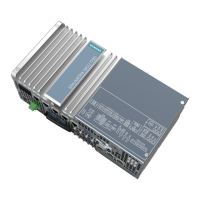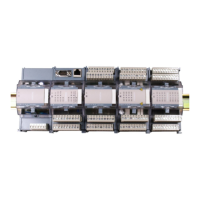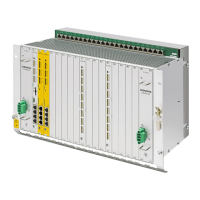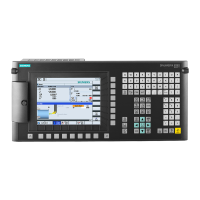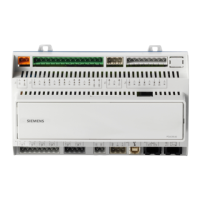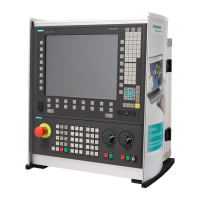● Compile cycles are supported only to a limited extent.
● Blank CAD data cannot be imported (for example, for castings).
● Couplings cannot be simulated (coupled motion, axial master-value coupling, electronic
gearbox):
– Coupled motion: TRAILON(<following axis>, <leading axis>, <coupling factor>)
– Axial master-value coupling: LEADON(Faxis, LAxis, curve table n) actual value and
setpoint coupling
– Electronic gearbox: EGDEF(FA, LA1, coupl.1, LA2, coupl.2, ... LA5, coupl.5), EGON,
EGONSYN, EGONSYNE
● Reference point approach G74 is not operative during simulation
● The following is not supported:
– Axis container
– Dependencies on part programs and PLC
– Multiple clamping
– CNC function Synchronized actions for safe programmable logic (SPL) in the NC
● Different technologies in different channels with different axis coordinate systems are not
fully supported.
● A 3D simulation is not possible for the grinding technology.
● The software limit switches are not evaluated:
In a manufacturer cycle for the tool replacement, the "Software limit switch + the Z axis"
machine data is used as replacement position:
G0 Z=$MA_POS_LIMIT_PLUS[Z]-0.1
However, not this position but the machine data default setting = 1e8 = 100,000,000 is used
in simulation. This default position is traversed in the simulation. This makes the simulation
very slow and causes the machining time to explode, e.g. 555 hours rather than 2 minutes.
● Program start in the simulation:
If MD22622 $MCS_DISABLE_PLC_START is set in a channel, then the channel is not
automatically started in the simulation. It can then only be started from another channel
using the part program command "START". This function is not available for the
SINUMERIK 828D.
● Alarm display in the simulation:
Alarms are output in the simulation exactly the same way as alarms in the normal program
execution, but no more than five alarms are displayed (above the graphic, to distinguish
them from the machine alarms).
If a different error signaling behavior (e.g. syntax error) occurs between simultaneous
recording and simulation, then, for example, the reason can be due to the hardware access
operations in the programming. The simulation does not access the hardware, however,
internally it reads the input with 0 and is then exited. On the other hand, for simultaneous
recording, an alarm is output.
Simulation and simultaneous recording
9.1 Simulation overview
SINUMERIK Operate (IM9)
138 Commissioning Manual, 12/2017, 6FC5397-1DP40-6BA1

